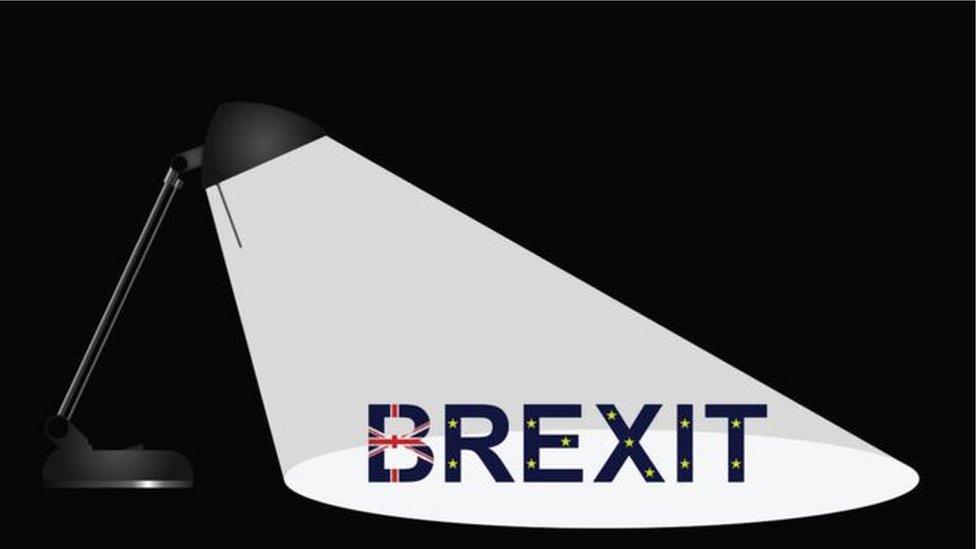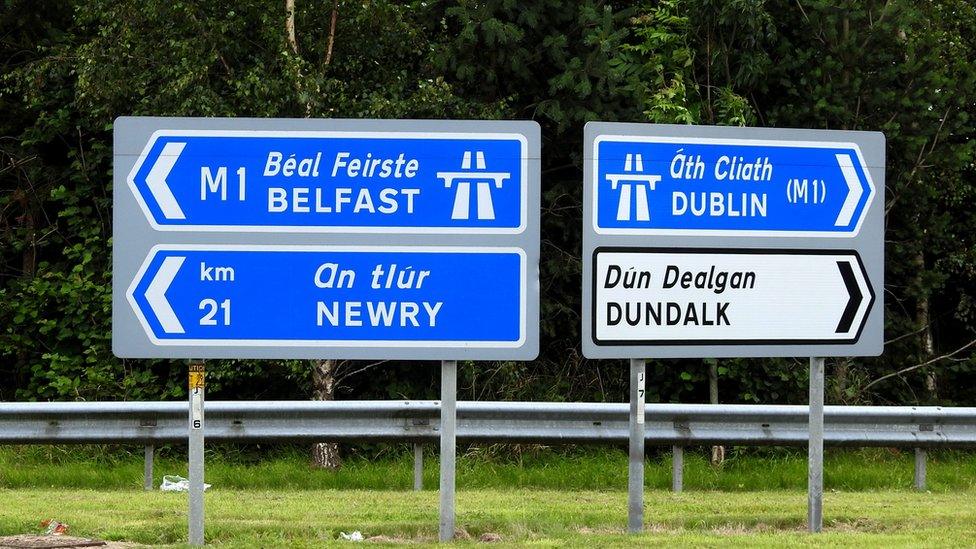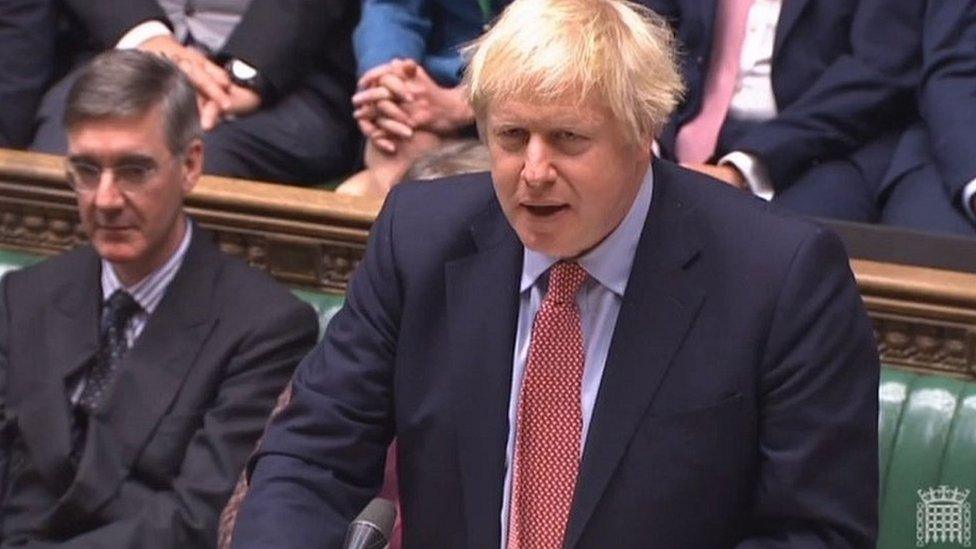Brexit: What would no-trade-deal mean for NI?
- Published
- comments

The government has effectively set a deadline of December 2020 to reach a trade deal with the EU.
Does that mean a no-deal Brexit is back on the table?
No-deal or no-trade-deal? What's the difference?
It's important to remember that Brexit consists of two deals, one on the withdrawal and one on the future relationship between the UK and the EU.
No-deal Brexit has come to be understood as the UK leaving the EU without a withdrawal deal.
The major fear in Northern Ireland was that no-deal would have meant the hardening of the land border.
However, a withdrawal deal was reached in October and the new government is now moving quickly to get that deal through Parliament.
It will also have to be ratified by the European Parliament.
Once those formalities are complete, the deal will be fixed in law and no-deal will be definitively off the table.
The deal guarantees no hardening of the land border in Ireland but will mean some new checks and controls at Irish Sea ports as a result.
It also includes an agreement on citizens' rights and a financial settlement.
So why are some people still talking about no-deal next year?
They are talking about the next phase of the Brexit process.
That will be a new negotiation between the EU and the UK to finalise their long-term trading and security relationship.
This is a deal that the prime minister is confident can be done in a year.
But it is possible that such a deal won't be reached in the time allowed.
So there is the risk that the EU and Great Britain would end up trading on World Trade Organisation terms in January 2021.
That would mean tariffs on goods, high tariffs in particular on agricultural goods and cars.
Think of it as a no-trade-deal Brexit rather than a pure no-deal Brexit.

In a no-trade-deal Brexit, there would not be a hard land border in Ireland but it would guarantee significant trade barriers between NI and the rest of the UK
What would that mean for Northern Ireland?
A no-trade-deal Brexit would affect Northern Ireland and the rest of the UK in very different ways.
England, Scotland and Wales would face tariffs and other trade barriers with the EU.
Northern Ireland would not. That's because the withdrawal deal guarantees frictionless trade with the Republic of Ireland and by extension the EU.
There would not be a hard land border, however it would guarantee significant trade barriers between Northern Ireland and the rest of the UK.
Why is that?
The withdrawal deal means that Northern Ireland effectively remains in the EU's single market for manufactured products and will continue to apply EU customs rules at its ports.
So the greater the divergence between Great Britain and the EU, the greater the divergence between Great Britain and Northern Ireland.
The more divergence, the more checks and controls on goods crossing the Irish Sea.
A no-trade-deal Brexit would mean a sharp divergence.
Take customs as an example.
Confused by Brexit jargon? Reality Check unpacks the basics.
Under the withdrawal deal, goods entering Northern Ireland from Great Britain which are deemed at risk of being moved on to the Republic of Ireland would be subject to EU tariffs.
One trade expert has suggested that could apply to more than 60% of goods coming into NI from GB.
The tariff could be claimed back if it can be shown the goods were consumed in Northern Ireland.
If there was a trade deal that complex tariff issue to a very large extent disappears.
But if there is no trade deal then many Northern Ireland companies will face red tape and possible financial pressures when "importing" goods from other parts of the UK.
- Published30 December 2020

- Published17 December 2019
